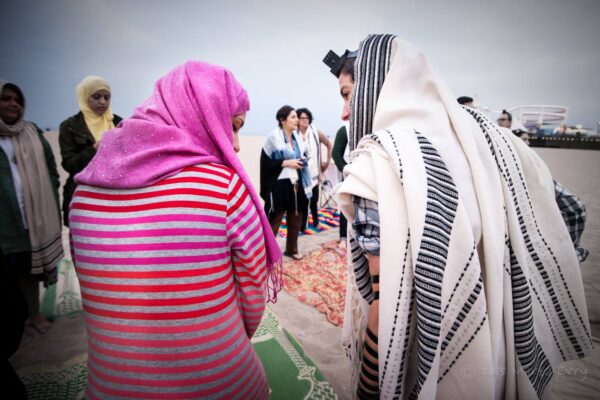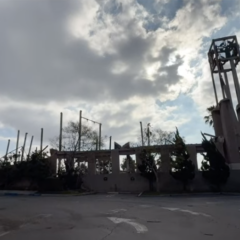In the face of a hostile climate to religious minorities, American Jews and Muslims are increasingly finding ways to collaborate and support each other, Christian Science Monitor reported. CRCC Executive Brie Loskota explains the ideals behind the interfaith dialogue and cooperation:
Such efforts also demonstrate a continued drive among Americans to hold to ideals of democracy and pluralism by banding together and finding common ground in times of fear and confusion.
“Groups that are willing to talk and learn and still maintain their identities and distinctiveness represent a real promise for what a pluralistic society looks like,” says Brie Loskota, executive director of the Center for Religion and Civic Culture at the University of Southern California.
“Difference is a fundamental reality of humanity,” she adds. “If we can’t negotiate that – if every disagreement is an existential disagreement – then the work of knitting together a society of 300 million people becomes almost impossible.”
Loskota also spoke of the ways in which American Jews and Muslims connect:
“For a Christian, to go to your weekly service generally means you don’t have to ask for a day off. Sunday is a day that most people don’t work,” says Ms. Loskota at USC. “If you’re Muslim, to get the middle of the day off on a Friday to go pray, that’s not easily accommodated.”
The same goes for dietary restrictions, modes of dress, and customs regarding behavior towards the opposite sex, Loskota says, not to mention more overt experiences of discrimination.
Crossing the boundaries of faith to form relationships around those shared realities not only allows Muslim and Jewish Americans to hear and understand each other’s stories. It also helps them create a community that can together compose a more powerful narrative about their place in American society, Loskota says.
“It’s moving the discourse from special privileges for a group or individual to an argument about who we are as a country,” she says. “Do we value people and their dignity?”
Click here to read the full article.
Photo Courtesy of NewGround: A Muslim-Jewish Partnership for Change





